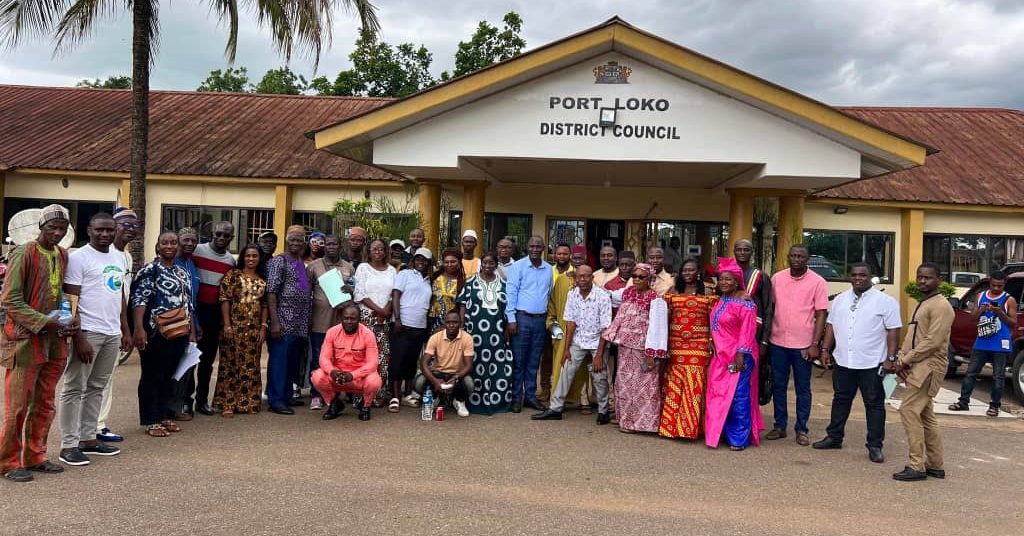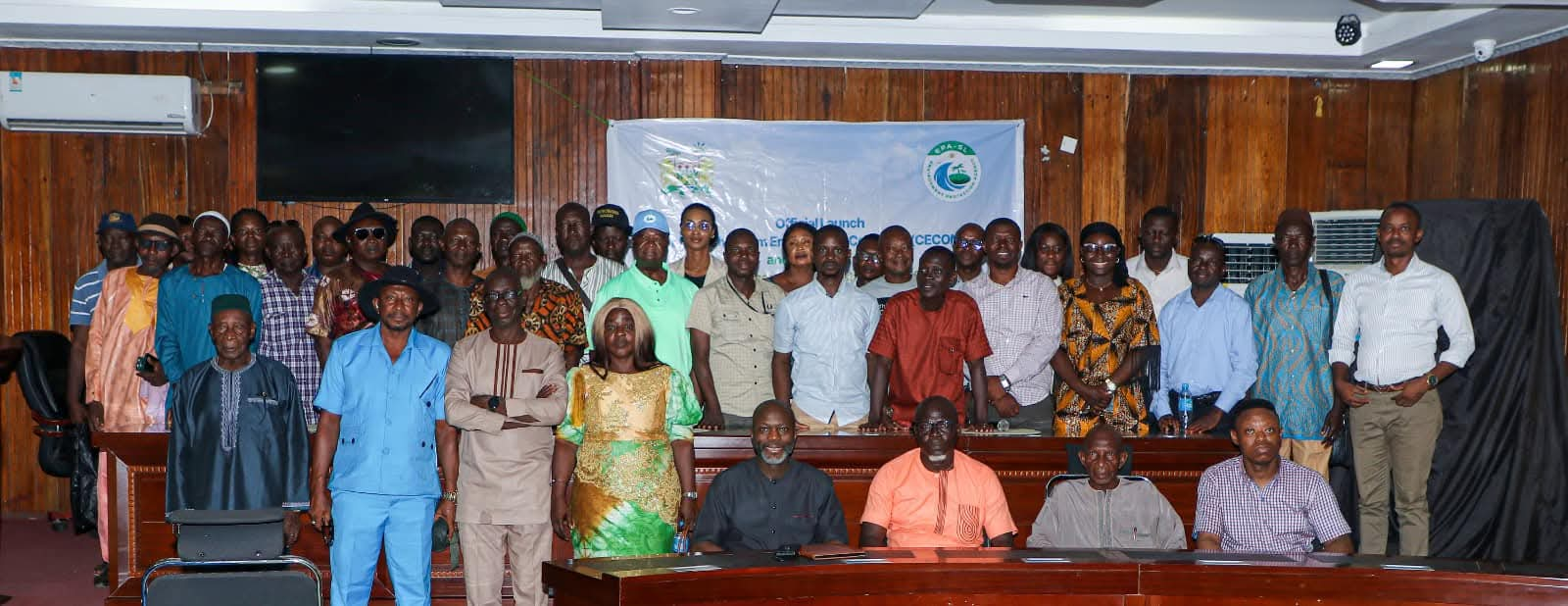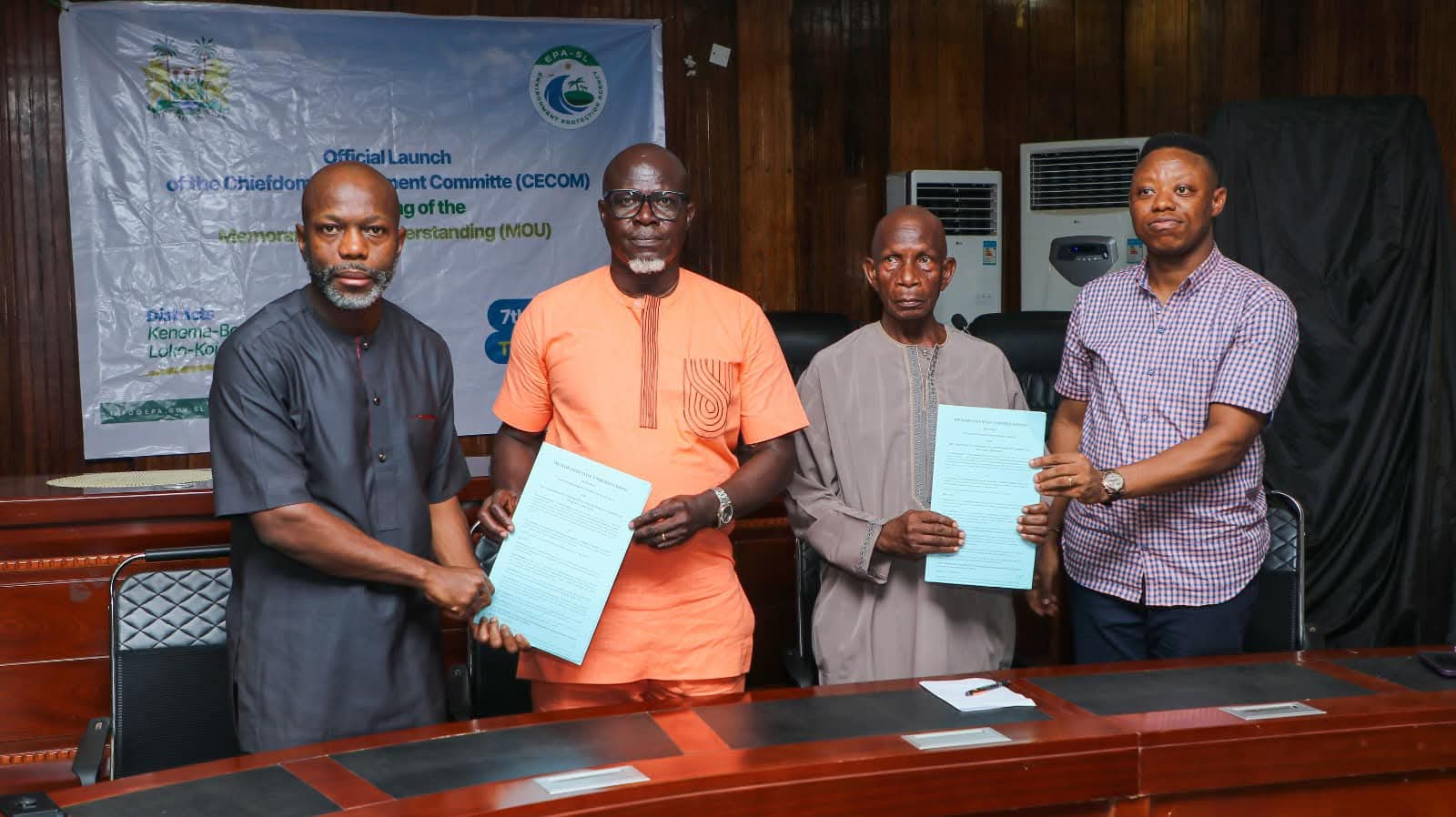The Ministry of Environment and Climate Change, on behalf of the Environment Protection Agency (EPA), has formally signed a Memorandum of Understanding (MOU) with the Ministry of Local Government and Community Development and key stakeholders.
This agreement solidifies the operational framework for ten Chiefdom Environmental Enforcement Coordination Committees (CEECOMs) across various districts.
The establishment of these ten chiefdom committees began in August of last year, under Section 68 of the EPA Act of 2022. Initial CEECOMs were formed in Nongowa Chiefdom (Kenema District), Kakua Chiefdom (Bo District), Lower and Upper Banta Chiefdom (Moyamba District), Simiria, Kafe, Mabonto, Yoni, and Tane Chiefdoms (Tonkolili District), Diang Chiefdom (Koinadugu District), and Marforki Chiefdom (Port Loko District). These locations were selected based on identified pressing environmental issues requiring immediate and feasible action.

The CEECOMs will operate under a comprehensive Action Plan, which outlines their operational provisions, objectives, and the specific roles of both the committees and the EPA. The plan’s core aims include consolidating trust in local administration, decentralizing environmental governance, and bridging existing gaps in environmental enforcement efforts.
Composed of local stakeholders, these committees are tasked with ensuring the sustainable harnessing of natural resources and will complement the EPA’s overarching role in environmental protection and management. Their scope of investigation includes offences such as illegal sand mining, mangrove destruction, unlawful charcoal burning, deforestation, pollution, and hazardous waste disposal. The EPA will serve as the supervisory body for these investigations.

Abu-Bakar S. Massaquoi, Executive Chairman of the EPA, emphasized the critical importance of achieving the objectives and goals set forth in the CEECOM Action Plan. He called for the collective support of local administrators, stating, “The objectives involve strengthening coordination between the EPA and local stakeholders, sharing data and resources to build the committee’s capacity, promoting public awareness, and conducting joint inspections and investigations of minor environmental offences as per the scope of the committee.”
To facilitate public engagement, the EPA provides a toll-free line (1999), accessible from any Orange Line, and an online complaint mechanism via their GRS portal mobile app for reporting environmental concerns. The EPA has committed to providing technical and logistical support to the CEECOMs, assisting in prosecution where necessary, offering training opportunities, and maintaining an open dialogue for redress mechanisms.











